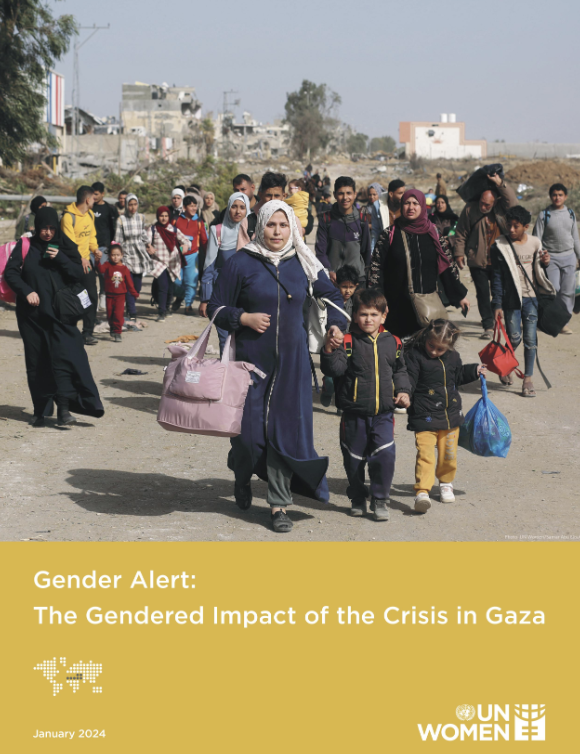In a recent report, UN Women notes the Gaza crisis’ unprecedented and catastrophic effects on women and girls, with a staggering loss of life and escalating humanitarian needs. The “Gender Alert: The Gendered Impact of the Crisis in Gaza” report paints a grim picture of the situation, revealing that at least 24,620 Palestinians have lost their lives, with approximately 16,000 being women or children.
The numbers are particularly alarming, tripling the total casualties of the previous 15 years combined. Disturbingly, the demographic percentage has shifted dramatically, with an estimated 70 percent of those killed in Gaza being women and children. Shockingly, two mothers are reported to lose their lives every hour since the crisis began.
UN Women Executive Director Sima Bahous emphasized the dire situation, stating, “We have seen evidence once more that women and children are the first victims of conflict and that our duty to seek peace is a duty to them. We are failing them. That failure, and the generational trauma inflicted on the Palestinian people over these 100 days and counting, will haunt all of us for generations to come.”
The crisis in Gaza is fundamentally a protection issue for women, with close to one million women and girls among the 1.9 million displaced individuals. Seeking refuge in precarious conditions, the decisions surrounding evacuation are fraught with gender-specific fears and experiences. Gendered risks, including attacks and harassment, emerge along displacement routes.
UN Women estimates that around 3,000 women may have become widows and heads of households, urgently needing protection and food assistance. Additionally, at least 10,000 children may have lost their fathers, increasing concerns about families resorting to desperate coping mechanisms, such as early marriages.
Despite the escalating hostilities, women-led and women’s rights organizations in Gaza persist in their operations. An astounding 83 percent of women’s organizations surveyed in the Gaza Strip are partially operational, primarily focusing on emergency responses. However, UN Women’s analysis reveals a stark funding gap, with only 0.09 percent of the funding directly reaching national or local women’s rights organizations.
Through its 6-Month Response Plan, UN Women in Palestine is actively addressing the crisis by providing life-saving assistance to over 14,000 women-headed households—approximately one-third of all women-headed households in Gaza. This includes support for distributing essential items such as clothing, sanitary products, and baby formula. UN Women is also collaborating with women-led organizations to deliver gender-responsive services for gender-based violence, establishing women-led protection and response committees in shelters for displaced women.
UN Women continues to advocate for an immediate humanitarian ceasefire, emphasizing the need for women’s and girls’ protection and safe access to rapid, unimpeded, and gender-responsive humanitarian assistance. The organization also expresses deep concern about reports of unconscionable sexual violence and other gender-based violence during the October 7 attacks, calling for accountability, justice, and support for all those affected, as well as the immediate and unconditional release of all hostages.










